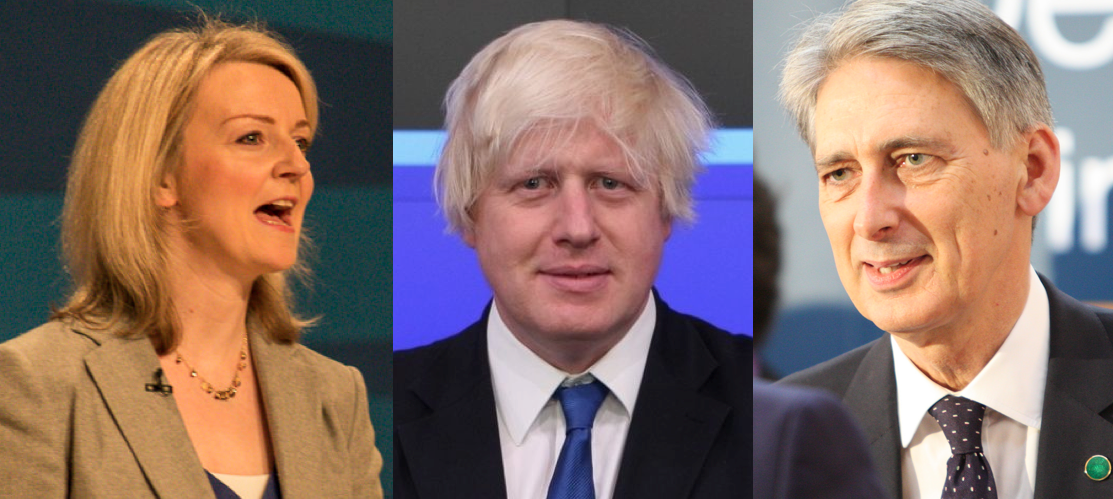Theresa May has officially stepped into the role of Prime Minister is putting together her Cabinet. But where do the new Cabinet members stand on human rights?
Philip Hammond, Chancellor

Philip Hammond has replaced George Osborne as Chancellor. It will be Hammond’s job to guide the UK’s economic policy and financial stability.
Hammond previously led the Foreign and Commonwealth Office (FCO). Part of the FCO’s mandate is to strengthen human rights protection internationally. According to its 2015 Human Rights and Democracy Report, the FCO worked on 75 human rights projects in over 40 countries. Hammond has written that the FCO has a “quiet” approach to tackling human rights issues, which he deems to be “the British way”. However, Parliament’s Foreign Affairs Committee (which monitors the work of the FCO) has expressed concerns about the FCO’s approach. The Committee stated that there is a clear perception that the FCO has “deprioritised” human rights and argued that more should be done to raise the profile of human rights.
In 2013, Hammond appeared on Question Time claiming that the Government had spent “too much time” on the issue of gay marriage. In 2014, he clarified that it was the pace of the change he was opposed to, rather than gay marriage in principle. In 2014, Hammond voted to make same sex marriage available to armed forces personnel outside the UK, according to They Work For You.
Boris Johnson, Foreign Secretary

A leading Brexit campaigner, almost a Conservative leadership candidate, and former two-term Mayor of London, Boris Johnson will step into Hammond’s previous role of Secretary of State for Foreign and Commonwealth Affairs. Boris will be responsible for the UK’s international relations and promoting the country’s interests abroad.
Boris’ international diplomacy may leave something to be desired – he has, for example, compared the EU’s aims to Hitler’s, claimed that US President Obama has an “ancestral dislike” of the UK because of his Kenyan heritage, and won a competition for the most offensive poem about Turkish President Erdoğan.
But Boris’ track record on human rights is mixed. The previously-mentioned poem was in response to Turkey’s restricting freedom of expression. In the past, Johnson argued against the extradition to the US of a man with Asperger’s syndrome as it would be a harmful to his well-being. He also voted to repeal ‘Section 28’ – the controversial ban on the promotion of homosexuality in schools – and voted in favour of civil partnerships. He was a prominent pro-Brexit campaigner but has ‘passionately’ defended the European Convention on Human Rights. He changed his mind over the European Union and could change it again over the ECHR.
Amber Rudd, Home Secretary

Amber Rudd has moved from her former role as Secretary of State for Energy and Climate Change to the position of Home Secretary, which Teresa May previously occupied. The Home Secretary is responsible for the UK’s internal affairs, citizenship and immigration.
Given her relatively short time in politics, Rudd hasn’t had much chance to express her views on human rights. However, we do know that Rudd contributed to the Committee on Equality and Non-Discrimination and was the Chair of the All Party Parliamentary Group on Sex Equality. She actively campaigns for the rights of women, sex equality, and the eradication of female genital mutilation.
According to They Work For You, Rudd has consistently voted in favour of equal rights for gay people, including gay marriage.
Elizabeth Truss, Justice Secretary
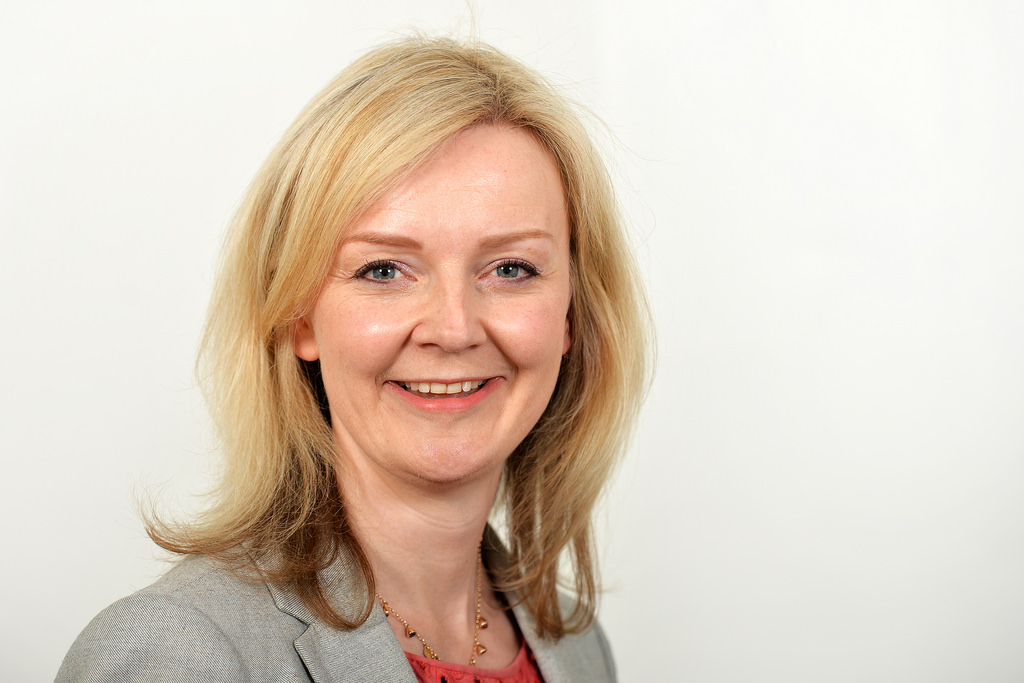
Former Secretary of State for the Environment, Liz Truss will be the new Secretary of State for Justice. She replaces Michael Gove. The Ministry of Justice is responsible for various law-related matters including human rights and civil liberties. Truss is the first woman to hold the position of Justice Secretary and Lord Chancellor. She is the third non-lawyer in a row to hold the position, after Chris Grayling and Michael Gove, although she has been a member of the parliamentary Justice Select Committee since 2011.
Having only entered politics six years ago, Truss hasn’t had much time develop a human rights track record. We do know that after the Queen’s speech in May 2015, Truss affirmed that the Human Rights Act would be replaced with a ‘British Bill of Rights’ because it was a manifesto commitment of the Conservative party. Truss voted in favour of gay marriage but also voted to restrict legal aid.
Michael Fallon, Defence Secretary

Michael Fallon will keep the role of Secretary of State for Defence, which he’s held since 2014. The Defence Secretary deals with matters affecting the UK’s armed forces.
Fallon supports replacing the Human Rights Act with a ‘British Bill of Rights’. He has argued against what he sees as “ambulance-chasing British law firms”, claiming that human rights cases against are “expensive” and inhibit “operational effectiveness“. We have posted previously about what human rights do for soldiers here and here.
Fallon has also made some controversial statements concerning migration. For example, he referred to communities being “swamped” by migrant workers, but he subsequently apologised for this remark. According to They Work For You, Fallon has generally voted against equal rights for gay people. He voted against gay marriage.
David Davis, Brexit Secretary

A prominent Leave campaigner, David Davis has taken up the newly-created role of Secretary of State for Exiting the European Union (informally known as the ‘Brexit Minister’). Davis will oversee negotiations relating to the UK’s withdrawal from the EU following the national referendum on 23 June, which the Leave vote carried by a narrow majority.
Davis previously worked as Shadow Home Secretary until 2008. During that time, Davis advocated bringing back the death penalty in some circumstances. According to They Work For You, he has consistently voted against equal rights for gay people. He voted to keep the Section 28 ban on promoting homosexuality in schools and against gay marriage.
On the other hand, Davis resigned from his role as Shadow Home Secretary in 2008 over the UK’s plans to extend detention time for terror suspects. He signed an open letter condemning the exclusion of evidence in ‘secret trials’. He also written in defence of the European Court of Human Rights, arguing that the proposed ‘British Bill of Rights’ could, in fact, weaken the liberty and security of British citizens. He even brought a legal challenge, along with Tom Watson, against the government’s data snooping laws. Ironically given Davis’s new position, the case has recently reached the European Union’s court.
Jeremy Hunt, Health Secretary
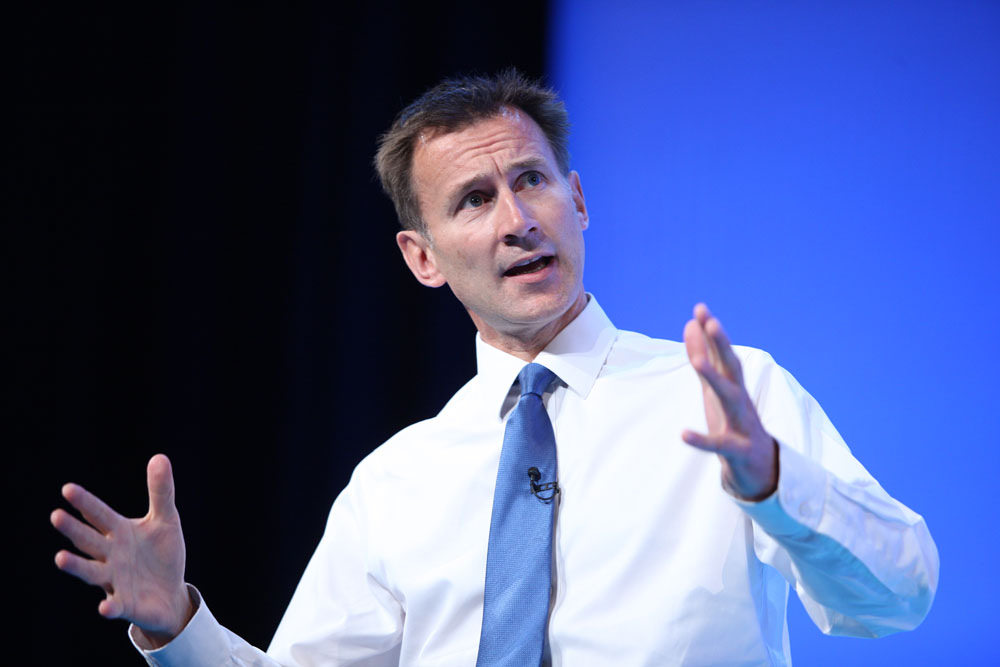
Jeremy Hunt will keep the role of Health Secretary which he has held since 2012. Since February, Hunt has clashed with junior doctors based on new contract proposals, resulting in industrial action. According to the Equality and Human Rights Commission, the new contract would unlawfully discriminate against women. Hunt also came under scrutiny in December 2015 when a report stated that Southern Health NHS Foundation Trust had failed to probe unexpected deaths. Hunt apologised and acknowledged the need for improvements.
In his previous role as the Secretary for Culture, Media and Sport, Hunt was questioned during the Leveson Inquiry into press standards, which considered phone hacking and the right to privacy. Hunt was accused of having too close a relationship with one of Rupert Murdock’s news companies while adjudicating its takeover bid for another company, but he was eventually cleared by Leveson.
Hunt has voted for same sex marriage. He initially blamed hooliganism for the Hillsborough deaths but later apologised. Hunt is also in favour of scrapping the Human Rights Act and replacing it with a Bill of Rights. He cited not being able to deport foreign terror suspects as a reason for the proposals. We have written about whether the Human Rights Act actually prevents the UK from deporting criminals and terror suspects here.
Justine Greening, Education Secretary
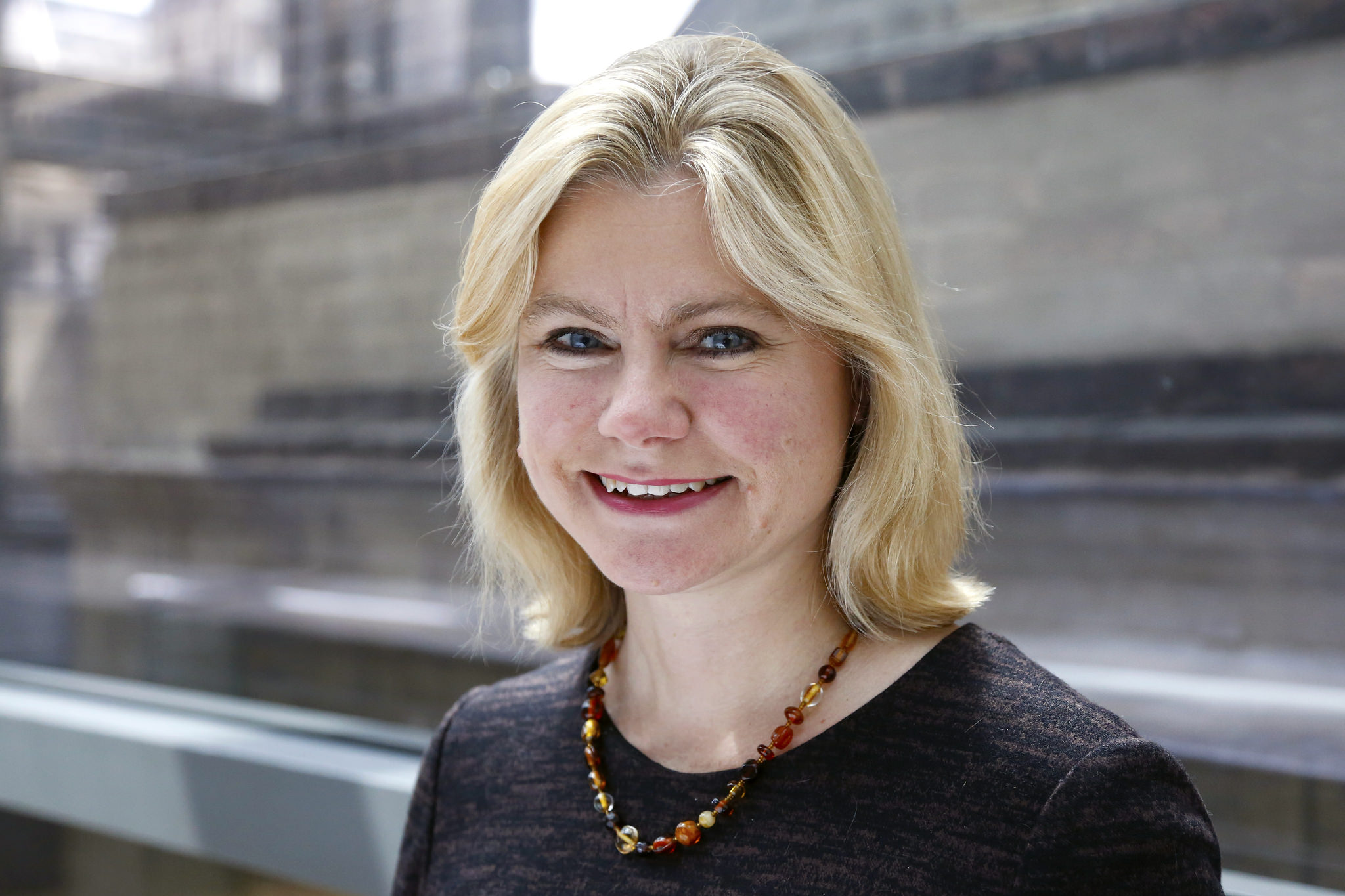
Justine Greening has moved from her previous role as Secretary for International Development to replace Nicky Morgan as the Secretary of State for Education.
In her role as Secretary for International Development, Greening campaigned for the UK to uphold its pledge to provide support to Syria and its citizens. Greening is also an advocate for women’s rights and was appointed to the UN High Level Panel on women’s economic empowerment. Greening has voted in favour of same sex marriage and, during Pride in London 2016, came out as the first openly gay female Conservative Cabinet member.
Andrea Leadsom, Environment Secretary
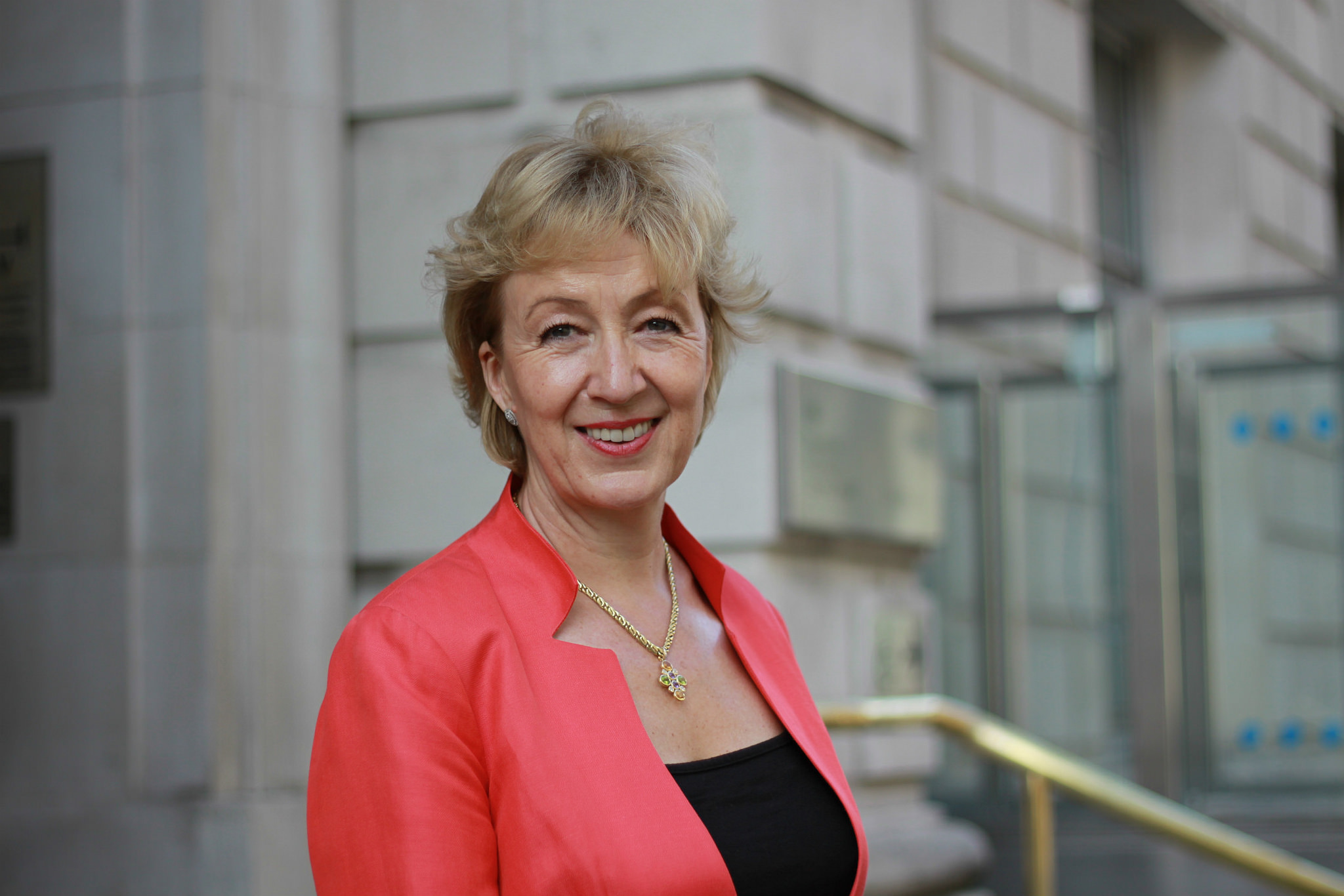
Andrea Leadsom was previously Minister of State for Energy and has now taken the Cabinet position of Secretary of State for the Environment.
Leadsom was only elected to Parliament in 2010 so her views on human rights are less well-known. She“positively abstained” from the equal marriage vote in 2013. She said this was because while she wanted to support gay rights, she could not “vote for a measure that risks centuries of faith based belief in marriage as between a man and a woman.” Leadsom was a prominent Leave campaigner. She appears to endorse the view that the European Convention on Human Rights should remain in place. Her website cites the European Convention on Human Rights as one way of protecting our rights with a Leave result.
In 2012, Leadsom told the House of Commons that businesses with three employees or fewer should no longer have to comply with any employment regulations, particularly “No minimum wage, no maternity or paternity rights, no unfair dismissal rights, no pension rights—for the smallest companies that are trying to get off the ground, in order to give them a chance”.
Chris Grayling, Transport Secretary
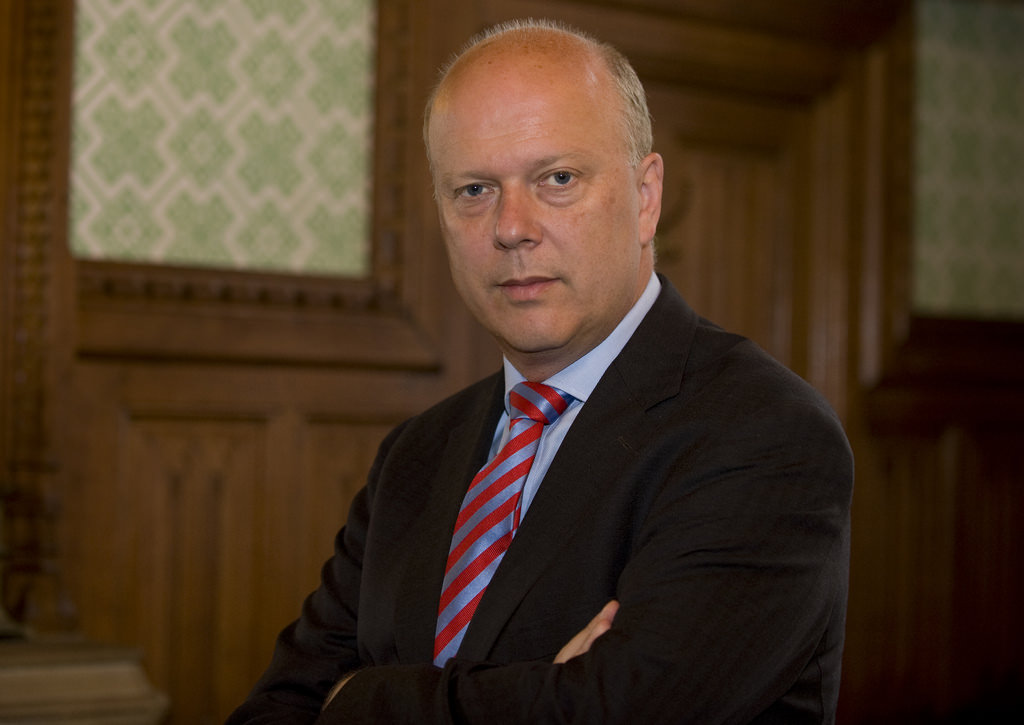
Chris Grayling will take up the new role of Secretary of State for Transport, having previously served as Justice Secretary and Leader of the House of Commons.
Grayling was a key campaigner for leaving the EU. During Grayling’s time as the Secretary of State for Justice he campaigned to repeal the Human Rights Act, claiming that Britain needed to regain sovereignty over human rights issues and that, if the Council of Europe did not accept this new arrangement, Britain should withdraw from the European Court of Human Rights.
Several of Grayling’s decisions as Justice Secretary were heavily criticised, including:
- A ban on giving prisoners books, which has since been deemed unlawful by the High Court;
- Cutting legal aid (by up to 30% in some cases), which led to the first ever barristers’ strike;
- Introducing a flat-fee court charge, which was eventually scrapped by his successor Michael Gove;
- Backing the choice of bed and breakfast owners to refuse gay couple patrons.
Damian Green, Work and Pensions Secretary

Damian Green replaces Stephen Crabb as the Secretary of State for Work and Pensions.
A former Justice Minister and Shadow Immigration Minister, Green is a strong supporter of the Human Rights Act. He has written about his sadness at the negativity expressed towards the Human Rights Act. Green is the former vice-chairman of the John Smith Memorial Trust which works to promote good governance, social justice and the rule of law. Despite consistently voting to restrict spending on welfare and benefits, Green consistently votes in favour of laws which promote equality and voted for same sex marriage.
James Brokenshire, Northern Ireland Secretary
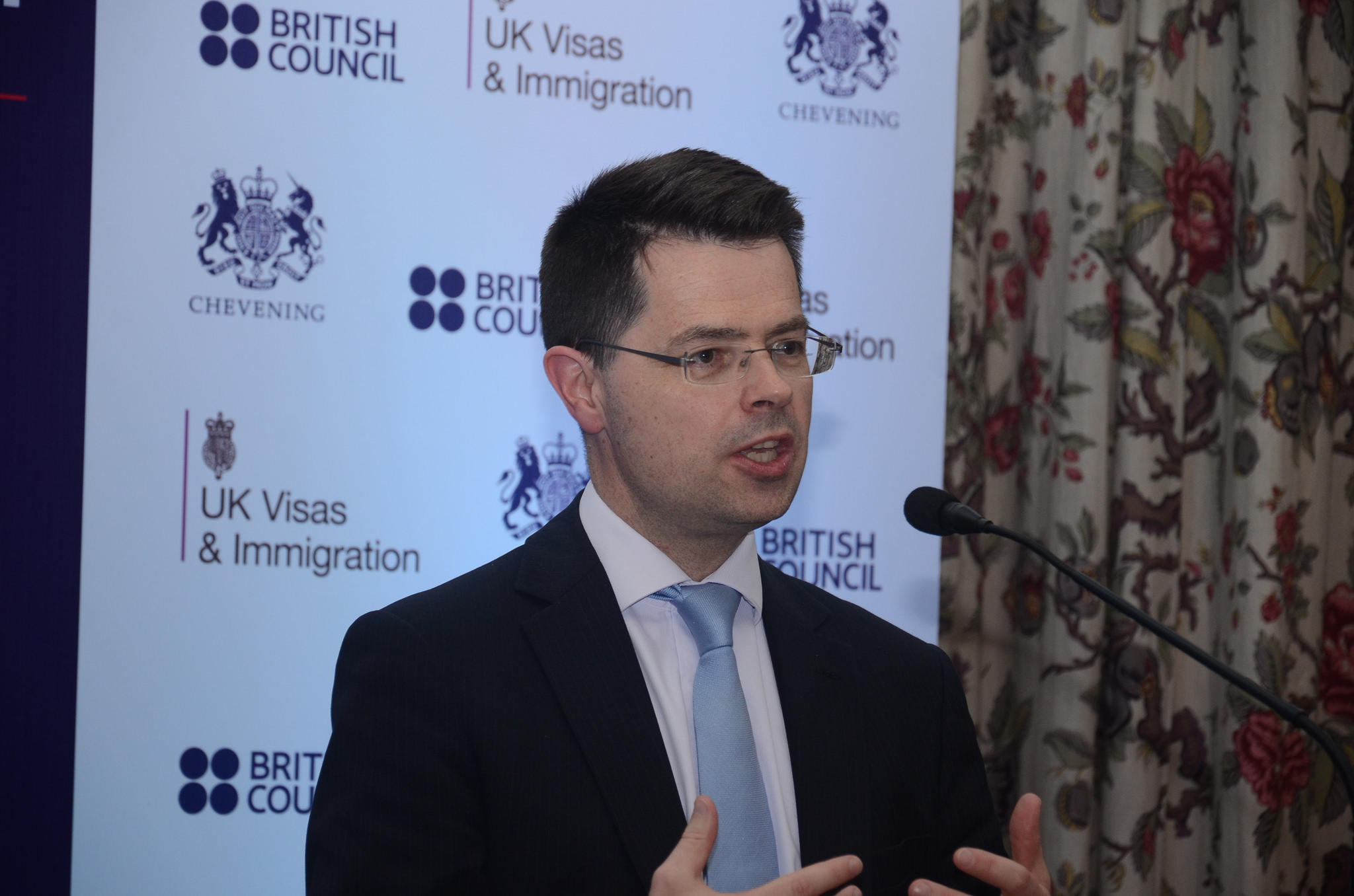
Previously Minister of State for Immigration, James Brokenshire is taking up the role of Secretary of State for Northern Ireland.
During his time as the Minister of Immigration, Brokenshire spearheaded various initiatives, such as the scheme to resettle unaccompanied children seeking asylum from the Middle East and the subsequent National Transfer Scheme encouraging local authorities to volunteer to care for the asylum seeking minors. Brokenshire also worked on the Bill which became the Modern Slavery Act 2015 and which prohibits slavery and forced labour.
On the other hand, Brokenshire has been criticised for using alarmist language and terms like “illegal” when discussing migrants. Brokenshire also worked on the Immigration Act 2016, which raises some concerns over the protection of vulnerable migrants. Brokenshire voted in favour of same sex marriage, but also voted to restrict legal aid on a number of issues.
Priti Patel, International Development Secretary
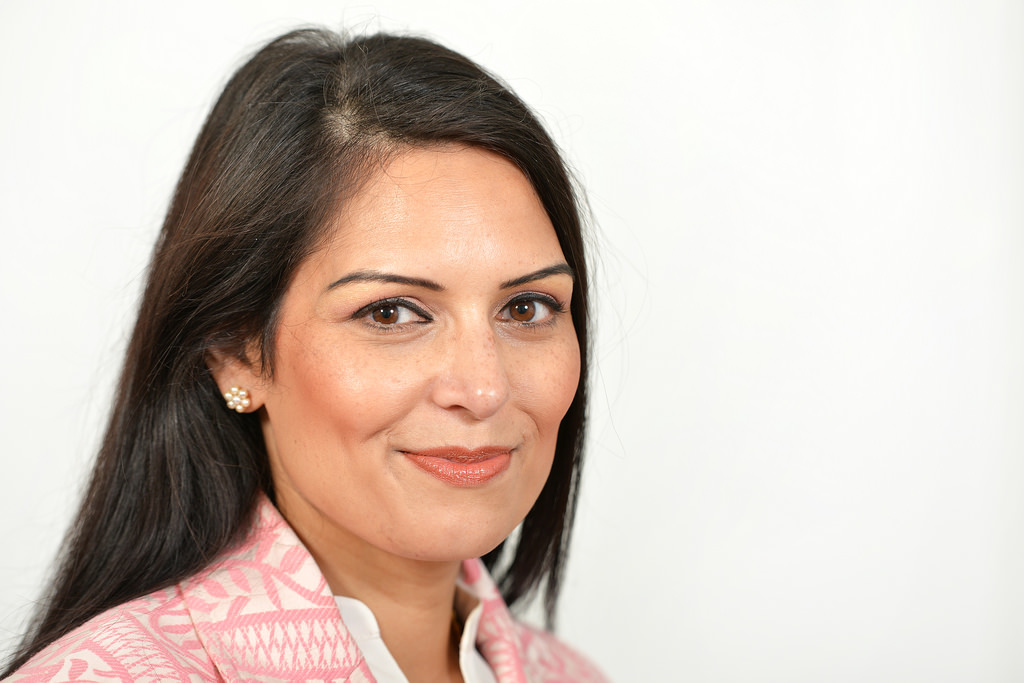
Moving from her role as Employment Minister, Priti Patel will be taking up the position of Secretary of State for International Development. Before entering politics, Patel worked as a lobbyist on behalf of British American Tobacco (BAT), working to improve their image. Part of the negative image Patel was trying to improve stemmed from reports that they paid their factory workers in Myanmar £15 a month, and later that their Nigerian farms employed children.
Since entering politics, Patel has publicly argued that the death penalty is an effective deterrent to crime. She launched a campaign arguing against giving prisoners the right to vote. She has stated that the Human Rights Act is a “glaring example of what is going wrong in our country.” Patel campaigned to leave the EU. She has generally voted against law which promote equality and human rights.
Jeremy Wright, Attorney General
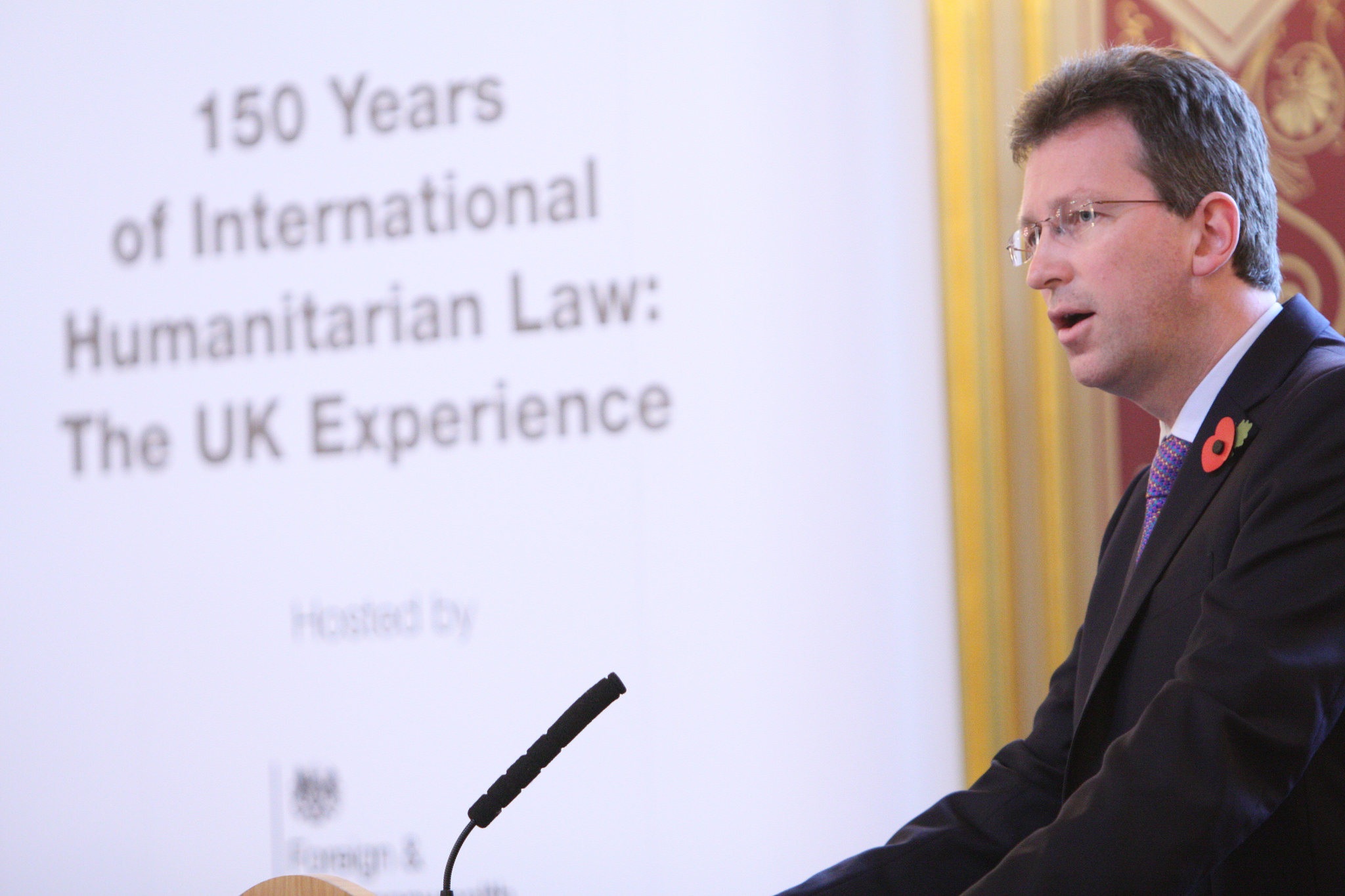
Jeremy Wright keeps his position of Attorney General, which he’s held since 2014. The Attorney General is the Government’s chief legal advisor.
Wright has been awarded the title of Queen’s Counsel (‘QC’), usually reserved for eminent barristers, and has served as a member of the Justice Committee. Wright is an advocate of human rights, and while he believes that the European Convention on Human Rights is a “fine document”, if the UK’s recommendations to replace the Human Rights Act with a Bill of Rights are not accepted by the Council of Europe (from which the Convention derives), the UK might have to withdraw from the Convention.
Wright has consistently voted against same sex marriage and has voted to restrict the scope of legal aid.
Liam Fox, Secretary of State for International Trade
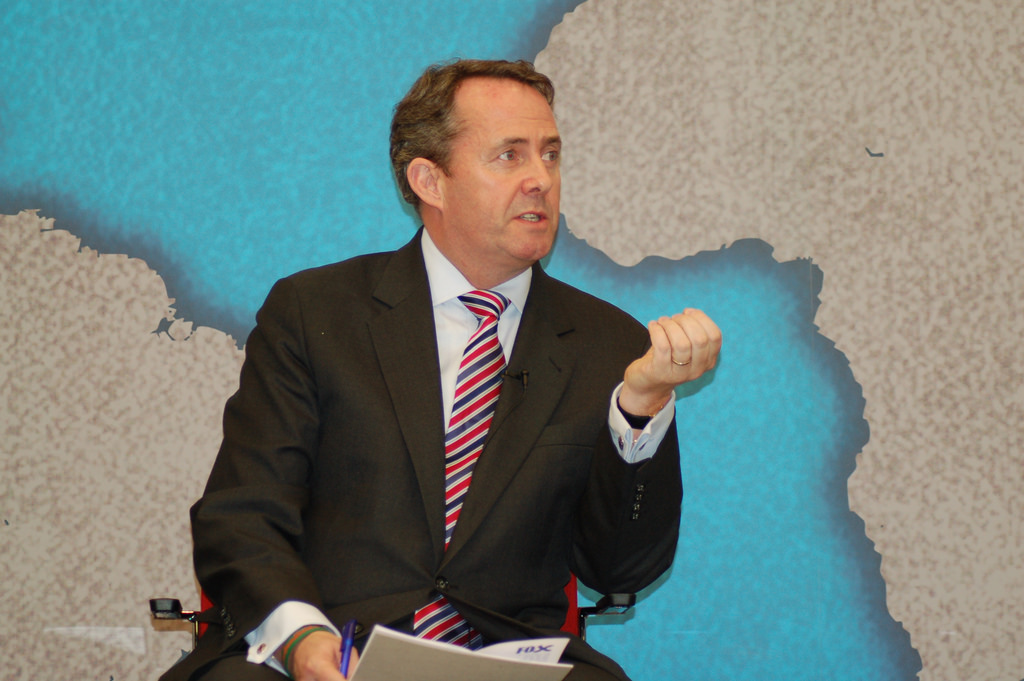
Liam Fox is stepping into the role of Secretary of State for International Trade. Fox previously held a Cabinet role as Defence Secretary up until late 2011. Fox has spoken out against gay marriage.
We will be keeping an eye on new appointments as they are made and assessing new Cabinet ministers’ views on human rights – watch this space!
Oh, and if you want to know about Theresa May herself, check out her human rights highs and lows.
Subscribe to RightsInfo and follow us on Facebook and Twitter for more human rights news, views and information.

